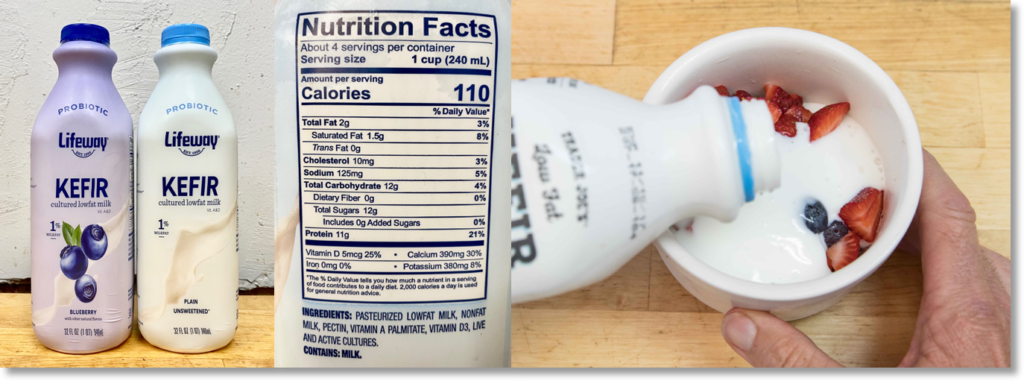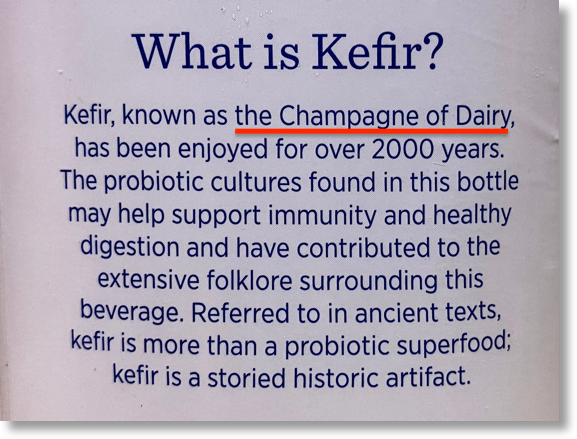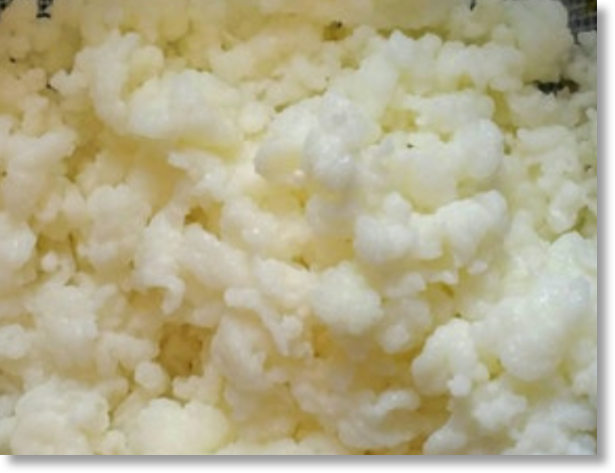First, I call us “a life support system for bacteria” because we have more bacteria in our bodies, mostly in our gut, than we have human cells. But really, both our body cells and healthy bacteria are life support systems for each other as they work closely together in balance and need each other to survive.
But, sometimes that balance goes out of whack.
That’s my second point. It’s been at least 15 years since I learned about kefir and started adding it to my diet regularly – and I sure am a big fan!
The reason: For a good chunk of my life, my gut and gut bacteria had been abused by fairly frequently prescribed antibiotic use – and probable overuse – due mostly to repeated ear and sinus infections. And then there was family and work-related stress I didn’t handle well. That nasty combination caused significant gut pain that just wouldn’t quit.
To turn that around, I learned to deal with stress and continue to stay on top of it through daily, disciplined, moment-to-moment applied mindfulness practice. More about that later.
At the same time, I learned how to take care of my gut by adding a combination of probiotics (foods full of healthy bacteria) and prebiotics (foods rich in fiber, that those bacteria need to eat to survive vibrantly to benefit us best) to my diet. The result: no more gut pain and a greatly improved quality of life.
I can, therefore, sure understand the big smile “Champagne of Dairy” line from the side of a kefir container…
…for both its pleasingly zesty, dry, bubbly taste and how it can help you feel. After all, the word “kefir” word comes from the Turkish word “Keyif”, which means “feeling good after eating”.
All excellent! But what is kefir, and why do people, like me, who drink or mix it with other foods regard it so highly?
Kefir is a fermented (bacteria activated/bacteria rich) yogurt-like drink made from the combination of milk (or milk substitute, like coconut or almond milk) and kefir “grains” (cauliflower-shaped bacterial colonies) that look like this:
The beneficial (“good guy”) bacteria that make up the dozens of kefir bacterial colonies eat and convert the milk sugar in milk (lactose) into lactic acid, which gives the drink its sour yogurt-like taste, and at the same time, allows those bacteria to multiply incredibly rapidly. That rich number and diversity of beneficial bacteria, in much greater numbers than yogurt, gives the drink an equally rich array of health-promoting properties like a boosted immune system, an enhanced ability to fight and prevent infection and disease, improved digestion, stronger bones and much more.
Regarding more, here are two excellent resources for detailed information about kefir health benefits:
9 Evidence-Based Health Benefits of Kefir (Healthline)
Microbiological, technological and therapeutic properties of kefir: a natural probiotic beverage (National Center of Biotechnology Information, National Medical Library)
Based on my health history noted above, I strongly recommend giving kefir a shot both for it’s flavor and how it helps support your richly diverse and vitally important microbiome (community of good, life-promoting bacteria).

 May 19th, 2022
May 19th, 2022  brucetretter
brucetretter 


 Posted in
Posted in  Tags:
Tags: